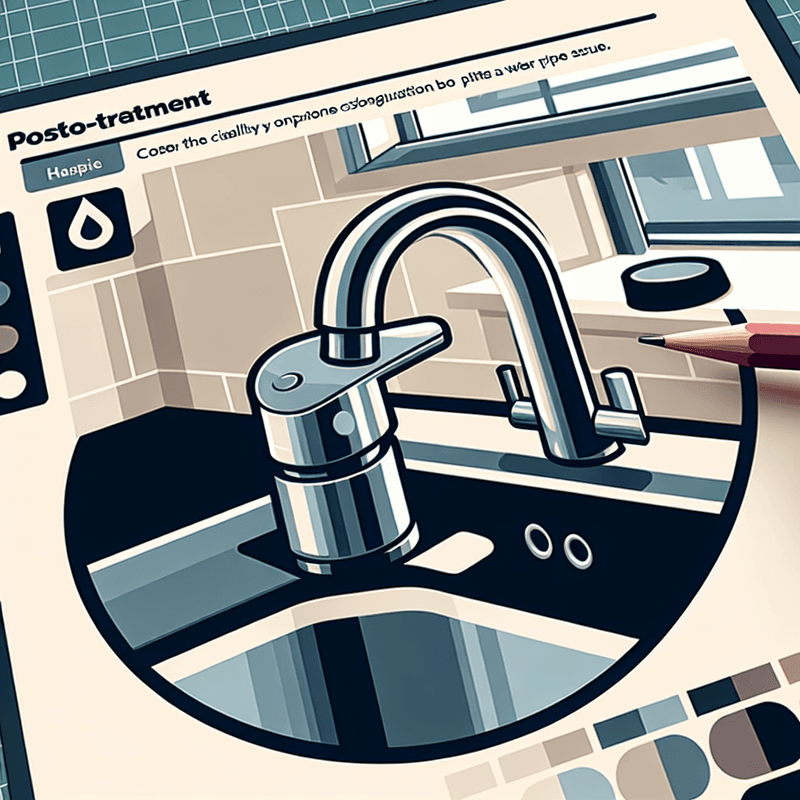Hard water is a common problem in many areas, characterized by high levels of minerals like calcium and magnesium. While not harmful to health, these minerals can cause a variety of inconveniences and issues in your home. Here, I will delve into the signs of hard water, the role of a water softener, and whether you should consider installing one yourself or hiring a professional.
Understanding Hard Water: The Basics
Hard water often manifests itself in ways that are not immediately linked to the quality of the water. You might notice that soaps and shampoos do not lather well, dishes come out of the dishwasher with spots, or that there is a buildup of scale on your appliances and faucets. These are just a few indicators that might suggest your water is hard.
Recognizing the Signs in Your Home
The evidence of hard water is usually visible. For example, if you find a white, chalky residue around your taps, in your kettle, or on shower screens, these are telltale signs. Also, if your skin often feels dry after bathing or your clothes appear dull and scratchy after washing, these too can be symptoms of hard water issues.
Function and Benefits of a Water Softener
A water softener is designed to remove the ions that cause hardness in water, primarily calcium and magnesium ions. It typically uses a process called ion exchange which replaces these hardness ions with softer ones, usually sodium or potassium. This not only helps in easing the daily nuisances caused by hard water but also prolongs the lifespan of your home's plumbing systems and appliances by preventing scale buildup.
Installation Considerations: DIY vs Professional Help
Deciding whether to install a water softener yourself or to hire a professional comes down to a few key factors. These include your proficiency with plumbing, the complexity of your home’s plumbing network, and the type of water softener system you choose.
Choosing the Right Water Softener
Not all water softeners are created equal. There are several types including salt-based ion exchange softeners, salt-free conditioners, dual tank softeners, and magnetic or electronic descalers. Researching the specific needs of your home and your water usage patterns is crucial before making a decision.
Step-by-Step Guide to DIY Installation
If you opt for DIY installation, always start by carefully reading and understanding the manufacturer’s guide. The basic steps involve:
1. Turning off the water supply and draining the existing system to prevent leaks.
2. Installing the water softener at the main line so all water is treated.
3. Positioning the unit close to a drain for backwash cycle discharge.
4. Ensuring all connections are secure to avoid pressure leaks.
5. Setting up the brine tank, if your system requires one.
6. Testing the system thoroughly post-installation for any irregularities.
When to Call a Professional
Tackling a water softener installation yourself can be fulfilling, but there are scenarios where calling in a professional is advisable. Complex systems, lack of basic plumbing knowledge, or simply the scale of the installation process are all valid reasons to hire an expert. An improperly installed water softener can lead to water leakage, damage to your plumbing system, or even ineffective water softening.
Maintenance Tips for Your Water Softener
Regular maintenance is key to keeping your water softener functioning optimally. This includes checking salt levels in the brine tank, cleaning the tank periodically, and looking out for any signs of salt bridges or blockages. Keeping a close eye on the system’s regeneration cycle is also important to ensure it is functioning as expected.
Long-Term Benefits and Considerations
While the initial setup and maintenance of a water softener require effort and perhaps further financial outlay, the long-term benefits can be substantial. From improved appliance efficiency and extended lifespan to better water quality and reduced skin irritations, the advantages are notable.
Conclusion: Is a Water Softener the Right Choice for You?
Hard water can be much more than a minor inconvenience, affecting various aspects of your household. A water softener offers a solution to these issues, though it presents its own set of challenges and considerations. Whether you decide on a DIY installation or to hire a professional, understanding the needs of your home and regular maintenance are key to reaping the benefits of softened water. Remember, overcoming hard water woes is not just about installing a softener but making sure it’s the right fit and appropriately maintained for your home.





